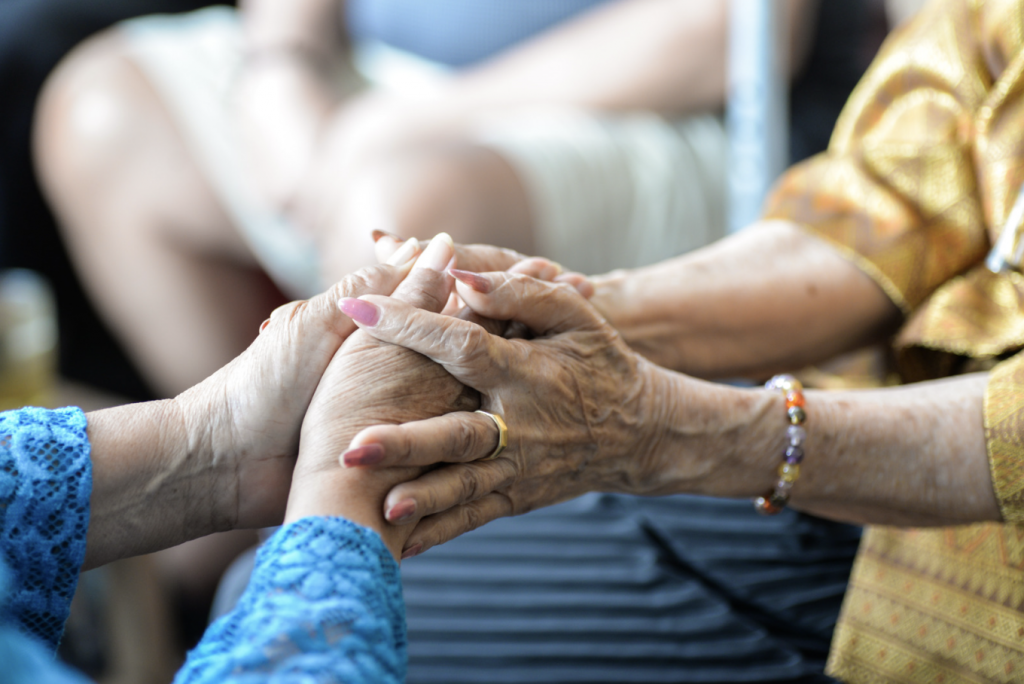A cancer diagnosis can be a life-altering experience, not only for the individual facing the illness but also for their friends and family. During this challenging time, providing meaningful support becomes crucial in fostering a sense of normality and alleviating the emotional and physical burdens that accompany cancer. In this blog, we will explore practical ways to support your friend or family member with cancer, including what not to say, fundraising tips, and strategies to maintain a sense of normalcy.
What to Say (and What Not to Say):
Navigating conversations with someone facing cancer requires sensitivity and understanding. While your intentions may be compassionate, certain phrases can inadvertently cause distress. Avoid clichés such as “everything happens for a reason” or making comparisons to other people’s experiences. Instead, offer specific and genuine expressions of care, like “I’m here for you,” or “I’ll support you in any way you need.”
It’s important to listen actively and let your loved one guide the conversation. Be open to discussing their feelings and concerns without judgment. Avoid making promises you can’t keep and refrain from offering unsolicited medical advice. Every individual’s experience with cancer is unique, so maintaining open communication and adapting your support to their specific needs is key.
Fundraising for Support:
Cancer treatment can be financially burdensome, often leading to unexpected expenses. Helping your friend or family member raise money can ease some of this financial strain. Consider organizing fundraising events, such as charity walks, bake sales, or online crowdfunding campaigns. Engage your community by spreading the word through social media, local newspapers, or community bulletin boards.
Collaborate with local businesses to sponsor events or donate a percentage of their profits to the cause. Networking and reaching out to a broader audience can significantly impact the success of your fundraising efforts. Keep in mind that even small contributions can make a meaningful difference in alleviating the financial challenges associated with cancer treatment.
Maintaining a Sense of Normalcy:
Amidst the challenges of cancer, helping your loved one maintain a sense of normalcy can contribute to their overall well-being. Encourage activities they enjoy, whether it’s watching a favourite movie, going for a short walk, or engaging in a hobby. Create a schedule that accommodates medical appointments while allowing for moments of relaxation and enjoyment.
Involve your loved one in decision-making processes, empowering them to maintain a sense of control over their life. Whether it’s selecting treatment options, deciding on daily activities, or planning social events, fostering a sense of agency can positively impact their emotional state. Be mindful of their energy levels and adapt plans accordingly, ensuring that activities are both enjoyable and manageable.
Practical Support:
In addition to emotional support, practical assistance can be invaluable. Offer to accompany your loved one to medical appointments, assist with household chores, or provide transportation to and from treatment sessions. Consider preparing meals that are nutritious and easy to digest, alleviating the burden of cooking during challenging times.
Respect your loved one’s need for privacy while also staying connected. Send thoughtful messages, cards, or small gifts to show that you are thinking of them. Respect their boundaries and be attentive to cues that indicate when they may need solitude or additional support.
Supporting a friend or family member with cancer is a journey that requires compassion, empathy, and practical assistance. By being mindful of what to say, actively participating in fundraising efforts, helping to maintain a sense of normalcy, and providing both emotional and practical support, you can contribute significantly to their well-being. Remember, every gesture, no matter how small, can make a positive impact on the journey toward recovery and normalcy.

